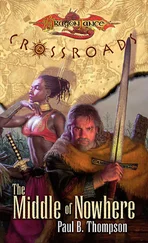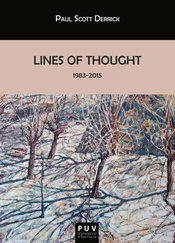Paulo Scott - Nowhere People
Здесь есть возможность читать онлайн «Paulo Scott - Nowhere People» весь текст электронной книги совершенно бесплатно (целиком полную версию без сокращений). В некоторых случаях можно слушать аудио, скачать через торрент в формате fb2 и присутствует краткое содержание. Год выпуска: 2014, Издательство: And Other Stories Publishing, Жанр: Современная проза, на английском языке. Описание произведения, (предисловие) а так же отзывы посетителей доступны на портале библиотеки ЛибКат.
- Название:Nowhere People
- Автор:
- Издательство:And Other Stories Publishing
- Жанр:
- Год:2014
- ISBN:нет данных
- Рейтинг книги:3 / 5. Голосов: 1
-
Избранное:Добавить в избранное
- Отзывы:
-
Ваша оценка:
- 60
- 1
- 2
- 3
- 4
- 5
Nowhere People: краткое содержание, описание и аннотация
Предлагаем к чтению аннотацию, описание, краткое содержание или предисловие (зависит от того, что написал сам автор книги «Nowhere People»). Если вы не нашли необходимую информацию о книге — напишите в комментариях, мы постараемся отыскать её.
Driving home, law student Paulo passes a figure at the side of the road. The indigenous girl stands in the heavy rain, as if waiting for something. Paulo gives her a lift to her family’s roadside camp.
With sudden shifts in the characters’ lives, this novel takes in the whole story: telling of love, loss and family, it spans the worlds of São Paulo’s rich kids and dispossessed Guarani Indians along Brazil’s highways. One man escapes into an immigrant squatter’s life in London, while another’s performance activism leads to unexpected fame on Youtube.
Written from the gut, it is a raw and passionate classic in the making, about our need for a home.
Nowhere People — читать онлайн бесплатно полную книгу (весь текст) целиком
Ниже представлен текст книги, разбитый по страницам. Система сохранения места последней прочитанной страницы, позволяет с удобством читать онлайн бесплатно книгу «Nowhere People», без необходимости каждый раз заново искать на чём Вы остановились. Поставьте закладку, и сможете в любой момент перейти на страницу, на которой закончили чтение.
Интервал:
Закладка:
He’ll give Maína his room to sleep in, he shows her how to lock the door from the inside (he feels a bit stupid explaining, the girl has trusted him so far, there shouldn’t be any further reason to be afraid, but all the same it seems the right thing to do). He goes up to the study, sits in his father’s leather armchair, turns on the television. They’re showing The Thing , the John Carpenter version, which was called Enigma do outro mundo — Enigma from Another World — in Brazil. He watches the first half, tells himself he’ll stay awake until the bit where Kurt Russell tests his team-members’ blood with a piece of hot wire to see which of them is infected. He can’t fight off his tiredness. He falls asleep before getting to it. In one of his dreams, he gets up at nine-thirty, opens the bedroom window, walks downstairs, goes straight into the pantry, where he finds Maína sitting at the table, keeping herself entertained leafing through the magazines she was given. He says hello, she responds with the same word. He prepares an omelette with mozzarella, he toasts four pieces of bread in the toaster and pours two glasses of chocolate milk. He says that when they’ve finished he’ll take her back. In the last dream, he is surprised to discover that the previous day he had stopped very close to where her family is. Maína opens the door, he says bye. She gets out of the car in silence but, when she closes the door (through the open window), she says Thank very much. Thank you very much, he corrects her, but she says again Thank very much, and he notices the lightness of her hair in the sun, and she turns her back on him before her mother discovers that her daughter has just been driven home by someone who hasn’t even realised he has gone much too far.
a porcelain sky
Originally unpaid, the internship at the law firm had ended up in an informal agreement to share in the profits, and today the payment Paulo receives is higher than a salary at other similar firms. He’s been getting along fine for almost two years now (what he needed to feel comfortable as an intern there was that the partners not object to his being a student leader). ‘I like genuine people, people with ideas’ — that’s what the senior partner, a civil lawyer pushing seventy, said when he interviewed him. When he was accepted he was given two ‘recommendations’: never to disclose the firm’s name in his speeches and statements, and never to take part in any kind of activity that could be labelled subversive. In their day-to-day interactions it’s common for Paulo to hear the nine lawyers who work there remarking that democracy isn’t as solid as people say, commenting on the possibility that the days of military rule could come back, that he should take care — advice that might have made sense in eighty-three or earlier, but not nowadays. At first, Paulo would reply affectionately, call them paranoid, always on his guard so as not to reveal his daily involvement in leftist activism. What would they have said about the time he was in Mariu’s, the old-school bar where students drink after classes and student union meetings, when a classmate of his, the son of a high-ranking officer in the military police, revealed to him something his father had mentioned? That his father had handled Paulo’s file at a meeting of the so-called PM2, the Military Division’s intelligence services that used photographs and daily reports to track and document the political activities of students, unionists, peasant groups, religious groups and anyone else whom the state considered leftist. His mother, strict as she is, would have a coronary, Paulo sometimes thinks, if she knew about anything like this; it wouldn’t be all that different with some of the lawyers at the firm.
At this moment, he and the two lawyers to whom he directly reports are in the meeting room, the jewel in the firm’s crown, not just for its decorative details (walls clad in English fabrics and all manner of framed items — even manuscripts by renowned jurists), but for the view onto the Praça da Matriz: you can see the tops of the jacaranda trees, the Court of Justice, the São Pedro Theatre, a bit of the Legislative Assembly, the top of the monument to Júlio de Castilhos. They have reached an impasse. Paulo who, as they have already mentioned, is only an intern, doesn’t want to agree to halving the percentage he receives from income generated around collection, payments and the termination of rental agreements that he calculates for the Chimendes Machado estate agency. Eleven months earlier, when the younger lawyer, the younger of the two sitting there at the table, had the idea of passing the estate agency account to Paulo in order to free up some of his own time and devote himself to prospecting for new clients, he made it almost impossible to refuse. Paulo didn’t like the imposition, the last thing he wanted at that point was to work exclusively for people who make their money exploiting those who don’t have a place of their own to live, and, on top of that, to have to put up with the unstable moods of Rafaela, the agency’s owner and one of the most difficult people to deal with he had ever met. Certain sacrifices can’t be justified in the name of experience. He knew that the new task was no more than a test. He treated it as a matter of honour. He decided to tackle the situation head on. He would get to keep a fifth of what the firm invoiced on the transactions; it wouldn’t be a fortune, but it would give him a nice little extra income. This recent idea to change their fee distribution came about when the partners realised that the sums being awarded to the estate agency under favourable judgments (following a change in the legal guidelines) had increased significantly, and it didn’t seem reasonable to them that an intern should be pocketing so much money. ‘It’s not my fault if the procedural criteria changed from one moment to the next, and Chimendes Machado expanded their portfolio of commercial and industrial properties and the value of the cases went up; it isn’t fair, you have to stick to what you promised,’ says Paulo, who has run out of patience with this conversation. He looks at his watch: one-fifteen. ‘I have to go to the Canoas Central Forum to deliver a foreclosure notice … As I told you earlier, I won’t be coming back into the office today.’ The lawyers say that they’ll have a think and respond in the coming days. The younger lawyer tells him to call from the Forum to ask whether they need him back in the office for any tasks that might come up. Paulo agrees, but only to be polite. There’s no way he’s coming back. He’s all set to see Maína, for what will be the third time. On their second meeting, they sat in a clearing on the bank of the Guaíba at the end of one of those many faintly sketched lanes that branch off the Estrada do Conde (a subsidiary road with pot-holed tarmac that connects the district of Eldorado do Sul to Guaíba), funnelling out until barely any cars come past; a tiny beach, just a dozen metres long, surrounded by rushes and elephant grass; a lovely, peaceful place, but dangerous in its isolation. This time they’ll go out to a plot of land on the Ilha da Pintada, a small, leafy, grassy place on the banks of the Jacuí river, surrounded by a wire mesh, with no constructions save for a little lean-to with a barbecue, a sink and a bathroom, the property of a former Varig pilot who is friends with his father. He just needs to stop at a little shop three hundred metres further up, say he’s a friend of the owner, collect the key that opens the padlock and that’s it.
Maína is wearing the blue skirt he gave her last time. They sit on the sawn-off tree trunks that serve as stools. Paulo has the exercise book that Angélica gave him. He has written a series of common words and phrases, and scratched out some illustrations and little maps, leaving half of the pages unfilled. He asks Maína not to move, he’s trying to draw her. She doesn’t do as she’s told. She takes off the skirt and shirt, takes the little All-Star skulls off her feet, and steps into the river. He doesn’t say anything, just watches her with all the modesty he can manage. She goes in until the water is just above her knees, turns towards him and lies face-down, dips her head under, and re-emerges saying that he should come in, too. (Her spontaneity is shocking.) A thirty-foot wooden launch appears in the distance, towing a fit-looking man of about forty on a single ski; the sound of the racing motor disrupts the silence. Paulo focuses, he simplifies his lines, completes the picture. It hasn’t come out well. He considers tearing out the page, ripping it up, and yet he won’t do it. Maína comes out of the water, lies on the grass. Paulo gets up, puts the exercise book down beside her, spots the same launch going past at a leisurely pace, without the man in tow. The minutes pass. Maína has dressed and her head is now resting on his right thigh. She thinks it’s funny when he surprises her with the battery-powered radio cassette player that he has brought to lend her. He explains how it works and she’s killing herself laughing. Now they are sitting on the blanket that he brought to lay on the ground. She knows he’s watching her as she leafs through the exercise book. Soon he is going to teach her some new words and they will discuss subjects she’ll only partly understand. Maína will take the pencil he used and write ‘Paulo’ over the drawing of her face, and will hand the exercise book back to him and ask him to write down the story she’s just told him, but using the words he would use if he were writing for his university friends (she will get the word ‘university’ right, both the meaning and the pronunciation), writing on alternate lines so that she can then copy it, letter by letter. In the story she told him there was a colourless girl who very much liked being kissed. One day the colourless girl was by the side of the road when a squad of bikers passed her and one of them threw an apple at her back. She almost fell over, she was hurt. They stopped a few metres on, took off their helmets, laughed at her. The day, which had been lovely and sunny, clouded over. Hurt, the apple looked sad, sadder even than the girl , that’s how he wrote it down. And she will watch the leaves on the trees and she won’t know when his leg has gone to sleep and the time has come for them to go.
Читать дальшеИнтервал:
Закладка:
Похожие книги на «Nowhere People»
Представляем Вашему вниманию похожие книги на «Nowhere People» списком для выбора. Мы отобрали схожую по названию и смыслу литературу в надежде предоставить читателям больше вариантов отыскать новые, интересные, ещё непрочитанные произведения.
Обсуждение, отзывы о книге «Nowhere People» и просто собственные мнения читателей. Оставьте ваши комментарии, напишите, что Вы думаете о произведении, его смысле или главных героях. Укажите что конкретно понравилось, а что нет, и почему Вы так считаете.












